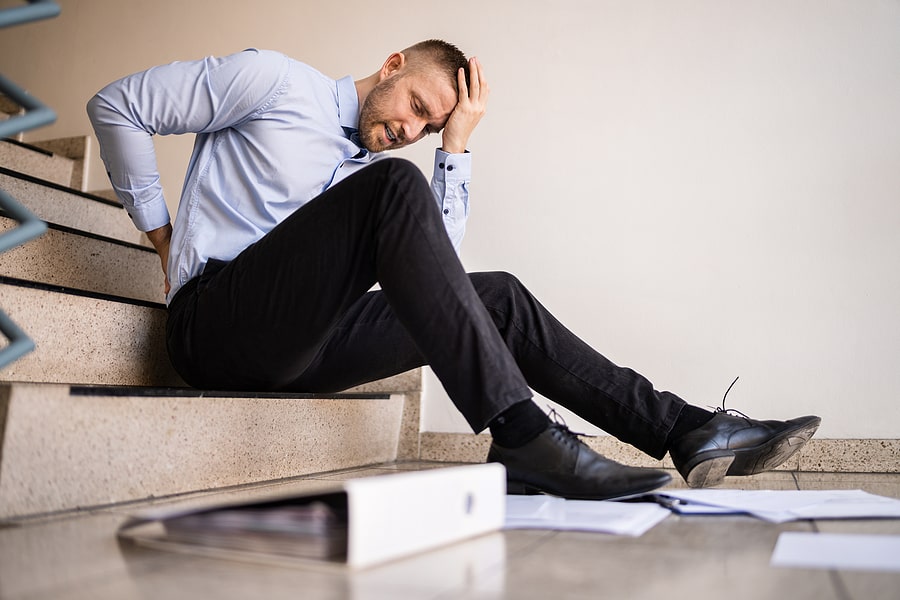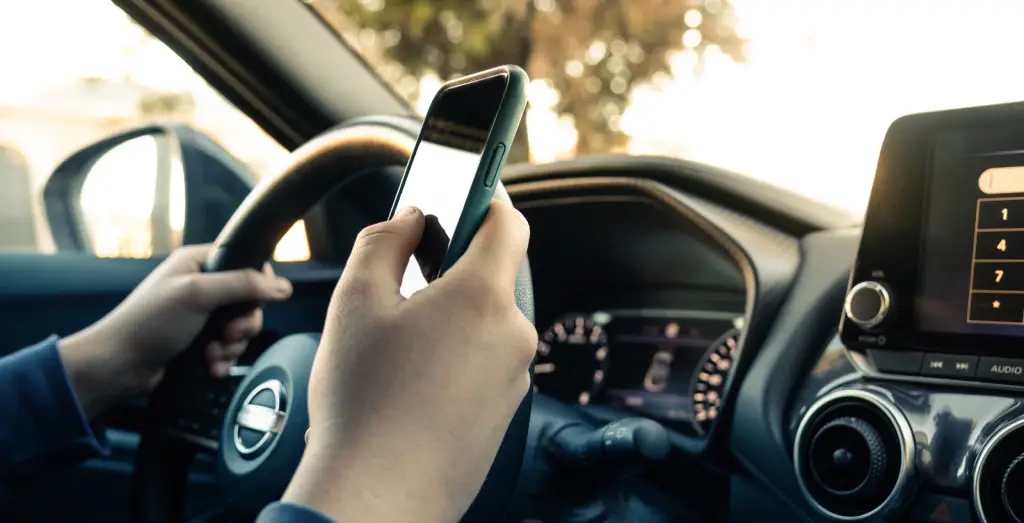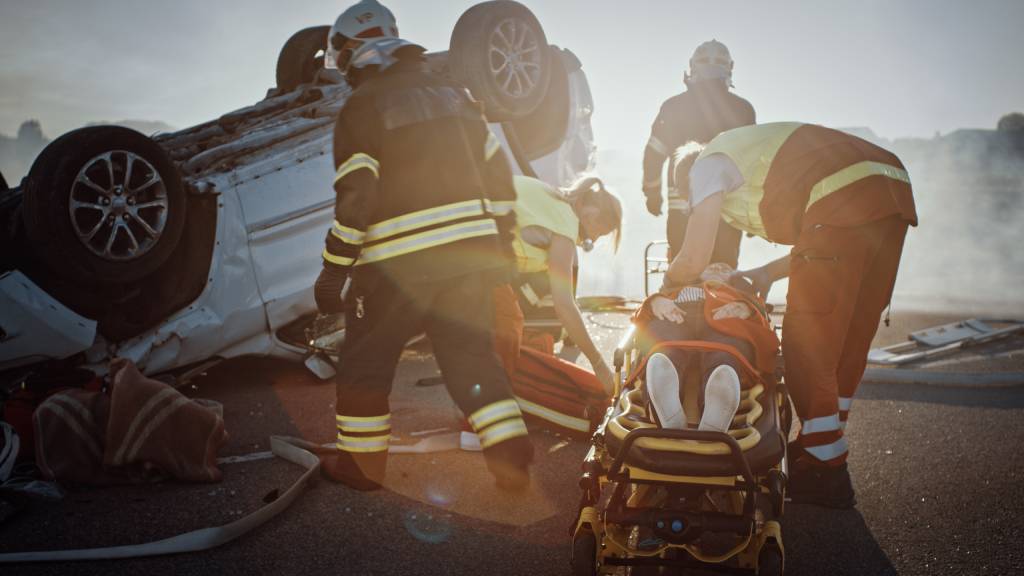Accidents – especially slips and falls – can happen anywhere. And, usually, slips and falls happen in very ordinary places! Whether you slip on a wet floor, or trip over a cracked side walk, accidental falls can ruin your day.
But they can also lead to more than just an inconvenience. In some cases, a seemingly minor slip or fall can lead to serious injury. And not all injuries are immediately obvious, especially if you’re a little shocked after the accident and try to brush it off.
So, when should you seek medical advice after a fall? Do you always need to see your doctor, or is it ever okay just to forget what happened and move on? The answers to such questions are nuanced. While you should call the May Firm to chat with a slip and fall attorney if you have any concerns about an accident on someone else’s property, here’s some general guidance.
What Is a Slip and Fall Accident?
A slip and fall accident is any incident where you slip, trip, or fall on someone else’s property. These accidents can occur anywhere, from a grocery store to a restaurant. What they all have in common is that they can result in serious physical injury. And in the worst cases, especially if you fall from a height or onto a hard surface, the result can be catastrophic.
When Can I Sue for a Slip and Fall Accident?
You can make a compensation claim if:
- You’re injured on someone else’s property; and
- The injury is a result of someone else’s carelessness e.g. a failure to clear an icy sidewalk.
The compensation you can claim varies depending on, for example, the extent of your injuries and the long-term prognosis. Losses such as medical bills and time off work will also be considered.
Time Limits for Slip and Fall Compensation Claims
You only have two years from an accident date to claim compensation for your injuries. Although this seems a long time, the sooner you claim, the easier a case can be to prove. Call our friendly team today to schedule a free, no obligation meeting about your fall.
How to Pursue a Slip and Fall Claim
Following a slip or fall accident, here’s what to do.
- Report the accident immediately. This could be to a supervisor, manager, or property owner. Just make sure the report is documented so there’s a record of your accident.
- Take pictures of your injuries and what caused the slip or fall e.g. a loose wire. Such evidence could be critical in a compensation claim.
- If there are any witnesses, try to obtain their details. They may be able to support your version of events.
- Contact a personal injury lawyer. At the May Firm, we’ll quickly explain if you have a claim and what legal rights you have. And we’ll help you pursue them to the fullest.
Seek medical care if you feel at all injured, unwell, or even just shaken by the accident. You deserve an examination to know if you’re truly okay or if you have an injury.
Symptoms to Look for After a Fall or Slip Accident
It’s easy to dismiss a niggle, a pain, or bruising after a fall But if you show these signs of potential injury from a slip or fall, you should seek medical treatment immediately:
1. YOU HAVE ONGOING PAIN.
Any time you hit the ground unexpectedly, you may experience an immediate flare of pain. Sometimes, that pain may remain minor. Other times, you may find yourself dealing with much more severe pain.
If the pain does not resolve quickly, or if pain shows up after the adrenaline from the accident wears off, you should pursue medical attention. You could have broken bones, a sprain or strain, or a muscular injury.
Back pain can occur after even a minor fall, especially if you already have underlying conditions. However, if you experience increased back or neck pain, seek medical attention and a full evaluation to ensure you have not suffered more serious injury than you think.
2. YOU EXPERIENCE SUDDEN, SHARP PAIN.
Broken bones and other serious injuries often involve sudden, sharp pain. You may notice that even light pressure or movement of an affected limb or body part causes pain. If you notice sharp signs of pain, you should always seek medical attention immediately.
In the case of broken bones, you may notice other signs of injury: a limb that seems out of shape, for example, or bone piercing or pressing against the skin. However, not all broken bones include visible symptoms, especially if you have cracked a bone. Furthermore, broken bones like hips may not seem evident outwardly but may still cause substantial pain.3. You have obvious swelling anywhere on your body.
Swelling often indicates injury, and you should pay close attention to any signs of swelling or disfigurement. Sometimes, swelling could indicate a broken bone.
Other times, it could indicate a serious sprain or strain. You may not notice swelling when you first get up off the ground after a fall, but you may see that swelling increase throughout the day, often becoming increasingly painful. You may also notice swelling when you first wake up the following day.
3. YOU HAVE SIGNS OF A HEAD INJURY.
If you hit your head during a fall, you should always seek medical attention promptly. While some signs of a head injury may make themselves evident immediately, in cases of minor brain injury, you may not immediately show signs that someone else can identify.
Signs of brain injury, or signs of concussion, can vary depending on the extent of the injury.
1. Blurred vision, tunnel vision, or other visual changes
Frequently, head injuries result in vision changes. Some victims notice blurred vision, while others have tunnel vision. If you have any visual changes after hitting your head in a fall, you should immediately seek medical attention, even if those symptoms seem to resolve. A medical professional can let you know if you have sustained severe injuries.
2. Ringing in your ears
In addition to causing visual changes, head injuries may disrupt your hearing. You may notice your ears ringing or find it more difficult than usual to hear. If you have ongoing changes to your hearing, just like in the case of disturbed vision, you should let a medical professional evaluate you.
3. Headache
Head injuries do not necessarily always cause headaches. The brain itself does not have pain receptors, which means that you may not notice symptoms of brain injury as pain. However, some types of head trauma can cause a headache, including an ongoing headache. You may also feel pressure in your head, resulting from brain swelling.
4. Dizziness, vertigo, or loss of balance
If you suffer from dizziness or vertigo after hitting your head in a fall, it could indicate that you sustained a severe head injury. Ongoing dizziness and vertigo should receive prompt medical attention.
5. Confusion or disorientation
If you feel disoriented, confused, or catch yourself forgetting things you would normally remember, it could indicate that you sustained head trauma in your fall. See a doctor to discuss any cognitive symptoms so that you can receive a full medical evaluation as soon as possible.
4. YOU HAVE NEW BACK PAIN.
An estimated 8 percent of adults suffer from chronic back pain. If you do not notice changes in your usual pain following your fall, you may not need to receive a new medical evaluation, though you may want your doctor to investigate your injuries.
On the other hand, if you suffer from an increase in back pain, or you did not suffer from back pain in the past, but you do after the accident, you should pursue medical attention as soon as possible. Back pain could indicate an injury ranging from whiplash or muscle strain to a herniated disc.
A doctor can identify the cause of your back pain and provide you with strategies that can help you minimize further pain and injury. Medical imaging, such as MRIs and CT scans, can be helpful here.
5. YOU SUFFER ANY SEVERE LACERATION.
Depending on why your fall occurred and the scene of the accident, you may come into contact with various sharp objects that could lead to lacerations. Serious lacerations may require immediate medical attention to stop the flow of blood.
Have a doctor evaluate serious lacerations to reduce the risk of infection. In some cases, you may need a tetanus shot or other treatment. Furthermore, prompt medical treatment can help reduce scarring.
6. YOU SUFFER FROM STOMACH PAIN AFTER YOUR ACCIDENT.
Stomach pain may feel unconnected to a fall, especially if you landed on another part of the body. However, stomach pain could indicate internal damage, including serious internal bleeding.
Furthermore, stomach pain could include referred pain from elsewhere in the body. If you find yourself suffering from stomach pain after a fall, do not attempt to wait it out. Instead, seek immediate medical attention.
Tell the doctor about the source of your pain and the fall.
7. YOUR ACCIDENT LED TO SUBSTANTIAL BRUISING.
Sometimes, you may walk away from a fall, feeling that you likely did not suffer serious injury, but discover later that you have substantial bruising. In some cases, bruising can just indicate a high level of trauma, including a few broken blood vessels.
However, bruising could also indicate other, more severe injuries, including sprains and strains or internal bleeding. While mild bruising might go unnoticed, if you do have more serious bruising, make sure you have a medical professional evaluate your injuries and rule out any more serious symptoms.
8. YOU HAVE ANY LIMITATIONS IN MOVEMENT.
After a fall, you may expect a little stiffness. However, if soreness restricts your movement, see a medical professional. Stiffness should resolve quickly with stretching and moving around. If you cannot work out that stiffness, get a doctor to evaluate you.
Furthermore, if you have stiffness after the accident, it could indicate a more serious injury, and a doctor should look further into it.
You should also see a doctor immediately if you have limitations in movement due to pain, including pain from bruising or an unexpected source. Keep in mind that not all injuries will show themselves immediately.
So if you wake up the morning after a fall suffering from serious pain or struggling with movement limitations, you may need to see your doctor.
Some injuries, including broken hips or other broken bones in the legs, spinal injuries, or back injuries may also make it difficult to move immediately after the accident. You may find it difficult to get up at all.
If you have pain or notice mobility limitations, you may need to call for an ambulance.
9. YOU DO NOT FEEL “RIGHT” IN ANY WAY.
Medical care professionals exist to provide peace of mind when it comes to your medical needs, including caring for your injuries after a fall.
You don’t need to “feel” physically injured after a slip or fall to see a doctor. Signs of concussion, for example, can be very subtle. Or you might just want reassurance after a physical evaluation.
And if, perhaps, symptoms develop later, then you have a record of attending your doctor straight after the accident.
WHEN YOU SHOULD CALL A DOCTOR AFTER AN ACCIDENTAL FALL?
There are two main reasons why you may need medical advice after a fall:
- You require medicine, therapy, or care to help you recover as much as possible; and
- Seeking treatment serves as evidence in a personal injury claim.
Without medical attention, you risk leaving potentially serious injuries undiscovered. This could worsen your prognosis and make an injury harder to treat. And without medical evidence, the at-fault party could argue that the injury didn’t happen on their property.
So, based on the symptoms to look for after a fall, when should you seek help? Here is a short guide for how to proceed.
If the Accident Victim Is Elderly
The elderly are some of the most vulnerable members of our community. They are especially prone to serious injury after a fall, such as head trauma and broken bones. Worrying symptoms to look for after a fall in elderly victims include:
- Confusion
- Change in gait e.g. limping, walking slower
- Bruising, lacerations, or other signs of soft tissue damage
- Pain that keeps them awake at night
- Nausea or general feeling of malaise
Falls involving the elderly must be taken seriously. Always seek medical advice if you have any worries, even if the incident seemed minor.
Did the accident occur in a nursing or care facility? Always report the slip or fall to the manager. Make sure it is documented – call our elderly abuse lawyers if you have any concerns.
If the Incident Involves Neck, Head, or Back Trauma
Your spinal cord, which runs from your head to your tailbone, is precious. Any slip or fall, however minor it may seem, can cause nerve damage. And while some nerve injuries are short-lived and resolve quickly, others can lead to long-term pain, damage, or even paralysis.
Always seek medical advice for a slip and fall in the following situations:
- The accident involved a direct blow to the neck, low back, or tailbone
- You have ongoing pain – particularly at night
- There is any new tingling, numbness, or pins and needles anywhere in your body
- You’re noticing new difficulties controlling bowel or bladder movements
- There is new onset dizziness or confusion
- There are any localized tender points in your neck, back, or head
Any of these symptoms warrant prompt investigation by your doctor. But these are just some of the symptoms to look for after a fall on your back. If you have any worries, don’t hesitate to call your doctor for advice.
If You Notice Symptoms Immediately
Do you have pain, bruising, or other symptoms right away? Then you should seek out a medical provider immediately.
- In the case of minor injuries, you can usually transport yourself. Or you may ask a friend or relative, if you can’t drive e.g. due to a swollen ankle.
- Does moving worsen the pain? Then it may be best to remain still, seek help, and get an ambulance.
Judge your injuries carefully. Listen to your body. And always seek a doctor’s treatment for an acute injury.
If You Do Not Have Clear Symptoms
Sometimes, you may fall, but not notice immediate symptoms of injury.
You may assume that you did not suffer serious injury and get up and go about your day as usual, especially if you already had other things to do. Even if you do not have clear injury symptoms, however, if you have a hard fall, get a professional medical evaluation right away. If you do have serious injuries, you do not want to risk those injuries going untreated.
If You Notice Symptoms Later
You assumed, after your fall, that you had not suffered serious injuries.
Later, however, symptoms start to creep in. Now what? What if you have no bruising after a fall, but pain? Or what if you have delayed soreness after a fall?
If you start to notice symptoms after the fall, even minor ones, get a medical evaluation as soon as you can.
Some injuries, including back injuries and head injuries, may show symptoms long after the initial accident. It can actually take days, or even weeks, to learn the true extent of a nerve or head injury.
Seek medical attention as soon as you can to make it easier to prove when your injuries took place. You may also find that seeking medical attention as soon as you notice symptoms can decrease their overall impact and lead to a better recovery.
FREE CONSULTATION WITH A SLIP AND FALL LAWYER IN CALIFORNIA
Did you suffer a slip or fall accident due to someone else’s negligence? Then you might have a compensation claim. At the May Firm, our experienced personal injury team can explain your options and determine the best way forward. We will establish if you have a claim, value what it is worth, and help you pursue much-deserved justice.
It’s our goal to help you secure the maximum compensation you’re entitled to. And it costs nothing to schedule an initial meeting with our team. We only charge for the work we undertake on your case if we win, so there’s nothing to lose by calling us.
Discover if you have a compensation claim now and pursue the damages you deserve. Contact the May Firm attorneys now to tell us what happened. Call or leave us a message online.



